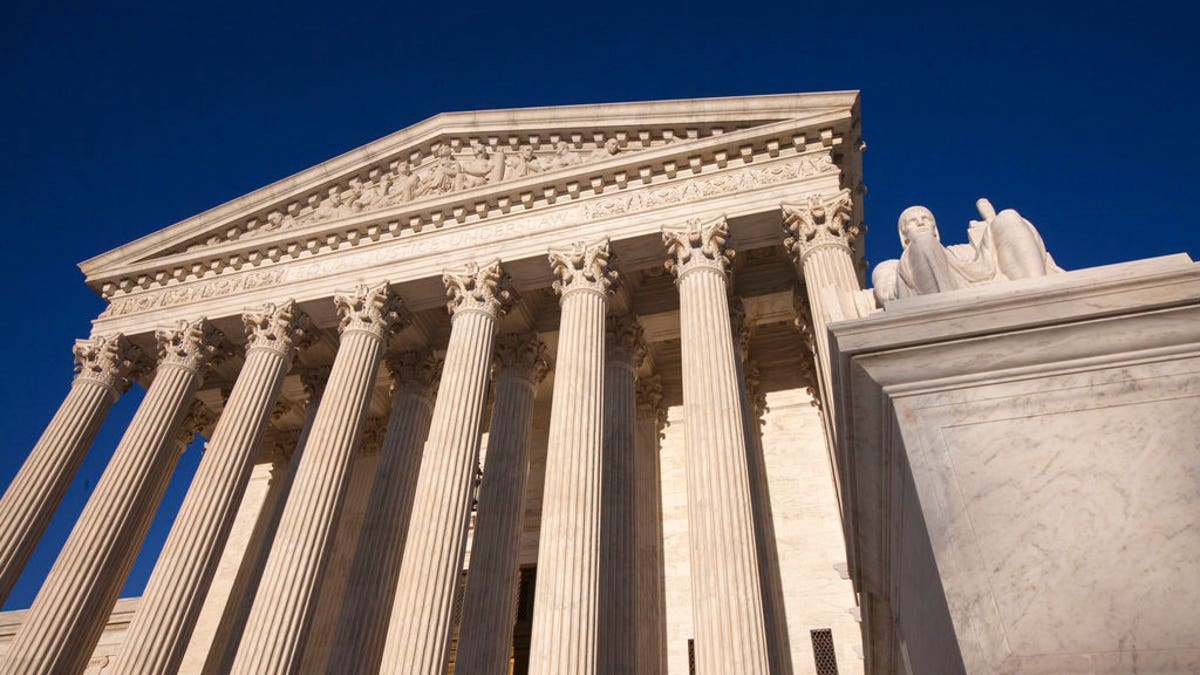
Oral arguments will be held this week at the Supreme Court on President Trump's so-called travel ban. (AP)
The Supreme Court is refusing to intervene in a legal fight over a Mississippi law that permits government workers and private businesses to cite their own religious beliefs to deny services to LGBT people.
Opponents say the law will likely lead to discrimination against those who support same-sex marriage.
The justices did not comment Monday in their decision to leave in place a federal appeals court ruling that allowed the law, known as HB 1523, to take effect. A three-judge panel held that the law's challengers failed to show they would be harmed by it. The appellate judges did not rule on the law's substance.
"Two years ago Mississippi passed one of the strongest religious freedom laws in the country," state House Judiciary B Chairman Andy Gipson, R-Braxton, told the Clarion-Ledger. "I was pleased to read today that the United States Supreme Court refused to intervene, allowing our law to remain in full effect. Congratulations to Gov. Phil Bryant and his legal team."
The Human Rights Campaign, a national LGBT civil rights group, calls it the "most sweeping and devastating state law to be enacted against LGBTQ people in the country."
AG DIRECTIVE PROTECTS RELIGIOUS OBJECTORS TO LGBT RIGHTS
The legal battle is not over, however. A federal judge has allowed the law's challengers to try to find people who have been denied services under the law because they would be able to make a strong legal claim that they have been harmed.
The Mississippi legislature drafted and approved the measure after the Supreme Court's 2015 decision that legalized same-sex marriage across the country. Gov. Phil Bryant signed it into law in 2016, but it was blocked for more than a year amid several legal challenges. It took effect Oct. 10.
The law claims to protect three beliefs: that marriage is only between a man and a woman, that sex should only occur in such a marriage and that a person's gender is determined at birth and cannot be altered.
The law allows county clerks who object to same-sex marriage on religious grounds to avoid issuing licenses to gay and lesbian couples. It also protects merchants who refuse services to LGBT people, and might also affect adoptions and foster care, business practices and school bathroom policies. Opponents say it also allows pharmacies to refuse to fill birth control prescriptions for unmarried women.
Mississippi is one of 28 states that does not have a law prohibiting businesses from discriminating against people because of their sexual orientation.
The Associated Press contributed to this report.




